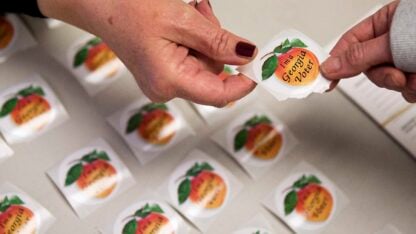Piedmont Hospital Launches Online Human Milk Donation Program

Healthcare specialists say premature babies need breast milk not formula, but some mothers struggle to produce their own milk.
To help these mothers, and their babies, Piedmont Hospital in Atlanta has launched a donor milk program – the first in the state.Broadcast Version of this story
Before this program Atlanta mothers in need of breast milk used to have few choices.
“One of the most prominent options was to get milk from North Carolina at the WakeMed center and if they weren’t able to do that then they either went to formula,” said Alicia Simpson, the leader of Atlanta’s La Leche League, a support group for nursing mothers. “Or they went to mom-to-mom milk sharing, which has its own set of risks in that those mothers aren’t tested.”
She said having a milk bank in Atlanta is long overdue.
Simpson said she understands some people might think it’s risky to take milk from strangers, but donated milk is safe.
“There’s extensive screening for the mothers who donate their milk to make sure they’re not drinking, smoking, that they don’t have HIV infections – things along that line. So, it’s almost safer than someone you know because someone you know they might not disclose all that information,” said Simpson.
Dr. Scott Johnson is a neonatologist with Pediatrix Medical Group at Piedmont Healthcare
He says the milk bank at Piedmont is different from other milk donations centers because it’s virtual.
“It doesn’t have to be someone in Atlanta. I mean, we could have someone in South Dakota or a family member in Montana go to the Piedmont website and apply online and someone will then go to their house wherever they are in the country and collect this donor milk.”
Once collected the milk is taken to a facility in California where additional vitamins, calories and proteins that premature babies need are added to the milk.
The process is done using a fortifier from human milk rather than cow milk, developed by Prolacta Bioscience, which is found in most donated breast milk, said Johnson.
“It’s hugely important it decreases infections, decrease mortality obviously,” said Johnson. ” There’s improved neurologic and developmental outcomes so this is a huge advantage as opposed to formula.”
The program is still in its early stages, but Johnson hopes to get more donations and expand to other hospitals.
9(MDAxODM0MDY4MDEyMTY4NDA3MzI3YjkzMw004))





